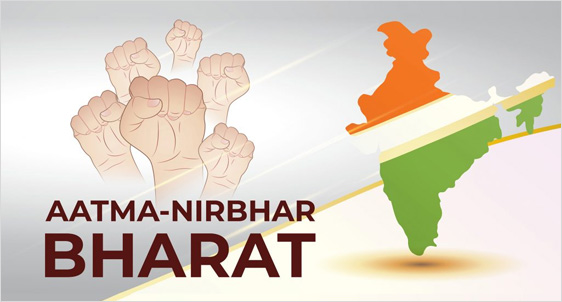As psychometric assessments done in India Inc is still governed by Western value systems…that by itself is the nature of our indentured servitude to the West. Is it a change of mindset that will help incorporate the ancient knowledge sciences into management thinking of India Inc and the world at large?
By Rajiv Dhabadkar
𝗕𝗲𝘄𝗮𝗿𝗲 𝗼𝗳 𝘁𝗲𝘁𝗮𝗻𝘂𝘀, 𝗲𝘃𝗲𝗻 𝗮𝘀 𝗺𝗮𝗹𝗹 𝗶𝗻𝗷𝘂𝗿𝘆 𝗰𝗼𝘂𝗹𝗱 𝗯𝗲 𝗱𝗮𝗻𝗴𝗲𝗿𝗼𝘂𝘀 – 𝘀𝗼 𝘄𝗲𝗮𝗿 𝗮 𝘀𝗵𝗼𝗲” ..this was the first tagline used by the foreign entity, Bata Shoe Company, to make an entry in India
Its Indian saga began in the 1920s when they discovered the need to serve the poorly served consumers who walked barefoot and in poorly made footwear. As a legacy of British colonization, many foreign companies already operated in the country and some stayed on even after 1947.
European Nestlé entered India in the year 1956. Britannia Industries Ltd was founded in 1892, with just Rs 295 to cater to the serving British officers and their families back then.
Ever since, Salted Butter gradually gained popularity in India, primarily to satisfy the British palette. By 1946, when Amul had arrived into the picture, the British owned Polson’s butter had been enjoying uninterrupted monopoly with government support, and Indian farmers were unable to sell their milk to other vendors in the market. Amul was thus formed after heavy resistance to the British owned Polson’s butter.
Vested interests are still colonising Indian start-ups
The presence of foreign companies in India is not a recent phenomenon and many have experienced a ‘bumpy ride’. We have around three dozen century-old companies that are listed and still actively traded with countless more investing heavily in India.
75 years since India became a Republic, today an estimated Rs 17 trillion of market cap has been transferred abroad after young Indian start-ups were forced to shift their company domicile overseas by foreign investors. Foreign funds are the new East India Company that are colonising successful start-ups in India by transferring ownership overseas to skip Indian regulations and taxes. Shades of the East India Company type of situation is experienced here – Indian market, Indian customers, Indian developers, Indian workforce. However 100% foreign ownership by foreign investors. IP and data is transferred overseas. And the transfer pricing issues are foggy. If this is not enough, Indian employees are continued to be psychologically evaluated as per western norms.
Psychological assessments in Indian Organizations
Introduced in the late 1800’s, psychometric tests featured prominently during the World Wars, and were being used as a tool to assess recruits for any neuroses. The tests administered back then were mainly mental tests, and the role that psychometric tests have taken on since then has drastically evolved, yet the basis of these tests remain unchanged.
Many western psychometric models have been propounded by psychologists who have studied the behaviour of people in clinical settings (that is, when the individual is mentally disturbed) and then assumed what “normal” behavior could be to further develop theories of “normal behaviour”. This fractured method of understanding human behavior is in stark contrast to the Indian Knowledge Traditions based models which have first dealt with “normal behavior” based on the interpretation of human personality, from birth to death, and then have gone on to give detailed explanations of what abnormal/clinical behavior is, how it is to be understood while also offering therapies and medical treatments to help get better and come back into the bandwidth of “normal-ness”.
Indian Knowledge Traditions rest on the belief that the human being is a tripod—composing of the physical, psychological and the spiritual dimensions. None of these models have been criticized as being irrelevant yet. The interpretations however have been adapted to suit current language and other cultural intonations, but have never been negated or become irrelevant even after 8000+ yrs since their “revelation”.
Psychological assessment using ancient Indian knowledge traditions.
Swayam, a startup in Bangalore is led by Dr. Shilpa Datar and backed by a team of scholars that has designed its Personality Assessment Test and Analytics based on this rich Indian heritage of knowledge discovery and is truly unique in its approach. The tests administered makes use of ancient psychological science combined with modern methodology to decode psyche, accurately. Relying on the time tested principles of Ayurveda like Tridoshas and Trigunas, the psychometric tests are able to look beyond the mental and physical make up of the individual.
Evolution of newer paradigms
Our partial understanding of psychology itself is based on postulations, which is becoming a thing of the past, as we have seen in the overhaul of various sciences like economics, psephology and other measurement sciences.
As Artificial Intelligence surpasses human intelligence in developing our rounded and holistic understanding of our sciences and life sciences, the distance between physics, metaphysics, psychology and spirituality has thus drastically reduced. This is precisely the reason why our reliance on ancient spiritual traditions and Indian knowledge traditions are the compelling need of organizations. Yogic systems that have stayed steadfast and relevant for centuries, are therefore the perfect basis for Psychometric assessments.
In conclusion, as psychometric assessments done in India Inc is still governed by Western value systems…that by itself is the nature of our indentured servitude to the West. Is it a change of mindset that will help incorporate the ancient knowledge sciences into management thinking of India Inc and the world at large?
Your thoughts?








